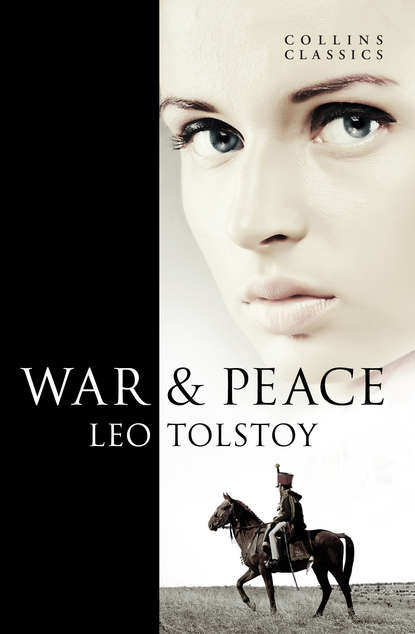href="#ulink_17dfc61d-9989-5bc5-9b4c-4f5d9e08653d">[43] muttered a German.
Several wounded men passed along the road, and words of abuse, screams, and groans mingled in a general hubbub, then the firing died down. Rostóv learned later that Russian and Austrian soldiers had been firing at one another.
“My God! What does it all mean?” thought he. “And here, where at any moment the emperor may see them… . But no, these must be only a handful of scoundrels. It will soon be over, it can’t be that, it can’t be! Only to get past them quicker, quicker!”
The idea of defeat and flight could not enter Rostóv’s head. Though he saw French cannon and French troops on the Pratzen Heights just where he had been ordered to look for the commander-in-chief, he could not, did not wish to, believe that.
43 “Hang these Russians!”
Rostóv had been ordered to look for Kutúzov and the emperor near the village of Pratzen. But neither they nor a single commanding officer were there, only disorganized crowds of troops of various kinds. He urged on his already weary horse to get quickly past these crowds, but the farther he went the more disorganized they were. The highroad on which he had come out was thronged with calèches, carriages of all sorts, and Russian and Austrian soldiers of all arms, some wounded and some not. This whole mass droned and jostled in confusion under the dismal influence of cannonballs flying from the French batteries stationed on the Pratzen Heights.
“Where is the emperor? Where is Kutúzov?” Rostóv kept asking everyone he could stop, but got no answer from anyone.
At last seizing a soldier by his collar he forced him to answer.
“Eh, brother! They’ve all bolted long ago!” said the soldier, laughing for some reason and shaking himself free.
Having left that soldier who was evidently drunk, Rostóv stopped the horse of a batman or groom of some important personage and began to question him. The man announced that the tsar had been driven in a carriage at full speed about an hour before along that very road and that he was dangerously wounded.
“It can’t be!” said Rostóv. “It must have been someone else.”
“I saw him myself,” replied the man with a self-confident smile of derision. “I ought to know the emperor by now, after the times I’ve seen him in Petersburg. I saw him just as I see you… . There he sat in the carriage as pale as anything. How they made the four black horses fly! Gracious me, they did rattle past! It’s time I knew the Imperial horses and Ilyá Iványch. I don’t think Ilyá drives anyone except the tsar!”
Rostóv let go of the horse and was about to ride on, when a wounded officer passing by addressed him:
“Who is it you want?” he asked. “The commander-in-chief? He was killed by a cannonball—struck in the breast before our regiment.”
“Not killed—wounded!” another officer corrected him.
“Who? Kutúzov?” asked Rostóv.
“Not Kutúzov, but what’s his name—well, never mind … there are not many left alive. Go that way, to that village, all the commanders are there,” said the officer, pointing to the village of Hosjeradek, and he walked on.
Rostóv rode on at a footpace not knowing why or to whom he was now going. The emperor was wounded, the battle lost. It was impossible to doubt it now. Rostóv rode in the direction pointed out to him, in which he saw turrets and a church. What need to hurry? What was he now to say to the tsar or to Kutúzov, even if they were alive and unwounded?
“Take this road, your honor, that way you will be killed at once!” a soldier shouted to him. “They’d kill you there!”
“Oh, what are you talking about?” said another. “Where is he to go? That way is nearer.”
Rostóv considered, and then went in the direction where they said he would be killed.
“It’s all the same now. If the emperor is wounded, am I to try to save myself?” he thought. He rode on to the region where the greatest number of men had perished in fleeing from Pratzen. The French had not yet occupied that region, and the Russians—the uninjured and slightly wounded—had left it long ago. All about the field, like heaps of manure on well-kept plowland, lay from ten to fifteen dead and wounded to each couple of acres. The wounded crept together in twos and threes and one could hear their distressing screams and groans, sometimes feigned—or so it seemed to Rostóv. He put his horse to a trot to avoid seeing all these suffering men, and he felt afraid—afraid not for his life, but for the courage he needed and which he knew would not stand the sight of these unfortunates.
The French, who had ceased firing at this field strewn with dead and wounded where there was no one left to fire at, on seeing an adjutant riding over it trained a gun on him and fired several shots. The sensation of those terrible whistling sounds and of the corpses around him merged in Rostóv’s mind into a single feeling of terror and pity for himself. He remembered his mother’s last letter. “What would she feel,” thought he, “if she saw me here now on this field with the cannon aimed at me?”
Конец ознакомительного фрагмента.
Текст предоставлен ООО «ЛитРес».
Прочитайте эту книгу целиком, купив полную легальную версию на ЛитРес.
Безопасно оплатить книгу можно банковской картой Visa, MasterCard, Maestro, со счета мобильного телефона, с платежного терминала, в салоне МТС или Связной, через PayPal, WebMoney, Яндекс.Деньги, QIWI Кошелек, бонусными картами или другим удобным Вам способом.
